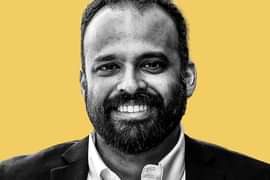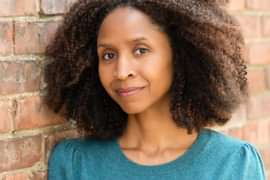October 11, 2013
Khan Academy and Phillips Academy break ground with innovative partnership
“Our mission is a world-class education for anyone anywhere”One night last August, Bill Scott sent a new batch of math problems to Khan Academy from his home computer in Andover. By then, the chair of Phillips Academy’s math department was beginning to get the hang of things, turning out 30 problems for the website in a matter of hours rather than days. He turned off his computer and headed to bed, with the latest problem set—graphs, functions and their derivatives—still on his mind.
In the morning, Scott logged on to the Khan Academy website—and could see that Sal Khan himself had uploaded the problem set to the live site at 9:20 a.m. (that’s 6:20 a.m. for Khan in Silicon Valley). Scott checked back three hours later to find that Khan already had created four new videos to accompany Scott’s lesson. “That guy is incredible,” Scott marveled. “He’s got a lean and mean operation.” So, too, does PA’s math department, whose members have been mining, finding and organizing their favorite BC calculus problems to help beef up Khan Academy’s highest-level math offerings as part of an unprecedented partnership with the online learning site. “This is the first time we’ve partnered with a high school to substantively drive a lot of our core content,” said Khan.
Since July, the math department has posted approximately 240 problems, which have been tried by more than 12,000 unique viewers. By fall 2014, Scott expects to work with the Khan Academy team to have a complete BC calculus course up and running on the site. “We’re thrilled to partner with Khan Academy in developing a BC calculus course that will reach anyone with Internet access and a desire to stretch themselves in this particular area of study,” said Phillips Academy Head of School John Palfrey. “Sharing the resources of PA—in this case, the talents of our faculty—with those beyond campus fits precisely within our mission.”
The partnership between Andover and Khan Academy began last spring, when Sal Khan, at the invitation of Palfrey, met with students and faculty on campus to explore ways to collaborate. Over the summer, Scott and colleagues Chris Odden and Matt Lisa visited the online academy’s California headquarters, where they met with Khan and his team.
Before the meeting, Scott was doubtful that a collaboration would work; after reviewing the site’s Advanced Placement BC calculus lessons, he and his colleagues noticed that there were major gaps in the calculus offerings. Scott recalls opening the meeting with the observation and Khan replying simply: “I know. That’s why you’re here.”
“That’s when he basically handed us the keys to the shop and got us under the hood,” said Scott, who then partnered with Khan Academy’s lead exercise software developer, Ben Eater, who created a tool that allows PA instructors to upload problem sets without having to master JavaScript code.
Since its beginning in 2006, Khan Academy has skyrocketed to become the global leader in K -12 online education, offering a free personalized learning experience with more than 100,000 practice problems and 4,800 lessons to students around the world, resulting in the delivery of 1.3 billion practice problems and 300 million online lessons.
Its partnership with Phillips Academy’s math department is helping to ensure that Khan Academy builds comprehensive lessons for the highest level of high school math.
PA’s math department, which consists of 30 instructors, is well suited to the task: last year, 90 percent of PA students who took Andover’s BC calculus course earned a “5,” the AP Exam’s highest grade.
“I see this as a tremendous professional development opportunity,” said Lisa. “I know I always get better as a math teacher the more I talk, in this case calculus, with another math teacher. The way we write the hints [for the Khan site] that go along with the problems, we’re really rehearsing how we would teach the material. It’s an incredibly valuable exercise.”
Under Scott’s direction, math instructors Matt Lisa and Lisa Joseph are the project managers for the Khan collaboration, assigning their colleagues different problem sets to work on. Math instructors Deb Olander and Mike McHugh work on data mining, requesting from their colleagues favorite problems from past tests.
“I say give them to me in Microsoft Word, or on a napkin, in any form, just give me great problems,” said Scott. Three teaching assistants help him upload the problems. And once a problem has wended its way through the flowchart, it is subject to the final approval of quality controller David Penner, math instructor emeritus, who, from his home in North Andover, Mass., works through each problem to ensure its accuracy.
More than half of the math department is working on the collaboration, but Scott, who notes how the project has energized his team, expects this number to increase. Lisa, for one, is excited by the “new ways in which faculty are connecting. There has been quite an uptick in collaboration here.”
“Sal Khan and his team of developers have been receptive partners and skilled guides as our faculty have devoted themselves to this project over the last several months,” Palfrey added. “I am incredibly proud of their work and excited to see what may come next.” A group of PA students will help with the collaboration, as well. Scott is reviewing a set of limit problems created by a group of AP math students; he plans to upload the problems within weeks. “In their meeting with Sal Khan last April, our AP calculus students shared that they had used the KA site regularly, and some said they had used it a ton,” said Scott, “so they’re thrilled to have this opportunity to contribute content.”
“We’re excited to have the support of Phillips Academy teachers as we continue to expand our interactive math exercises,” said Khan. “Our mission is a world-class education for anyone anywhere, and when people think of world class, they think of places like Phillips Academy. In the coming year we are working with their math department to develop rigorous adaptive exercises appropriate for a first-year course in calculus. We see this as just the beginning of a fruitful partnership and look forward to scaling the Phillips Academy teachers to the world.





